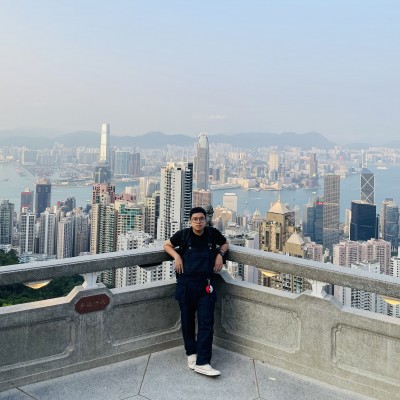
Jose Kervin Cesar B. Calabias
The adaptive and nurturing academic environment at Lingnan University supports students to pursue their academic interests with a global focus
Third-year PhD student Jose Kervin Cesar B. Calabias started his research in cultural studies at Lingnan University in Hong Kong in 2020, just as borders began to close due to the Covid-19 crisis. “I was rushing to the airport because Hong Kong’s inbound restrictions were going to change in the next 24 hours,” he says of his journey from his home country of the Philippines. Calabias landed in Hong Kong a month before his studies began and stayed for the next three years. Before his dorm was ready, Lingnan helped Calabias find alternative accommodation. “From the start, the university was very supportive,” he says.
This continued throughout his studies. Now that he has submitted his dissertation, Calabias’ supervisor is helping him with publishing options and networking. “It’s not gatekept,” he says. In fact, connections are built into the student journey. “Seminars are designed for the current cohort, so that’s also one of the ways that we build networks specific to our research projects,” he explains. The approach used by staff was encouragingly collegial, Calabias says of the environment where he felt like he could speak freely and not be judged.
In addition to the academic support, Calabias was awarded a fellowship through the Hong Kong PhD Fellowship Scheme. “To be given that and have Lingnan University as my host university was beyond my expectation,” says Calabias, who initially set out with a simple plan to study abroad. “Getting a fellowship was already more than I could ask for,” he says. As well as the fellowship, Calabias also received the Belt and Road Scholarship from the Hong Kong government to cover his tuition fees. He adds that the university regularly informs students about scholarships and funds that are open for application.
As an indigenous Filipino scholar researching indigenous studies, Calabias views his selection for the fellowship as a positive step toward decolonisation. “My research wouldn’t have been possible if I didn’t get the funding here in Hong Kong,” he says. Calabias studied the experience of indigenous Igorot people from the Cordillera mountain range in the Philippines who are engaged in domestic work in Hong Kong, and how they represent and identify with their indigenous heritage. “I actively sought out seminars and workshops that focus on domesticity, migration and indigenous studies.”
In his first year, Calabias was given time to sharpen his proposal with guidance from supervisors and faculty. “The environment was academically rigorous, challenging, but very nurturing,” he says. Calabias mentions that, while the Covid-19 pandemic disrupted opportunities for in-person international collaborations, international networking and mentorship opportunities were continued over Zoom.
Calabias shares some advice for students who are pursuing advanced or postgraduate studies: “Prioritise your mental health. See yourself as your only competition. You are in competition with yourself, and it’s okay to take a break.”

